Data quality software plays an essential role in optimizing data for analytics: these software tools cleanse, structure, and enrich raw data to improve its quality and usability.
Clearly the need for data quality software is great: Data in its raw form is barely usable – it gives little to no meaningful insight and may contain errors, inconsistencies, and inaccuracies. Raw data lacks structure, context, and organization, making extracting valuable information or drawing accurate conclusions challenging. Consequently, most enterprise managers are always seeking top choices for data quality solutions.
To aid in this process, we analyzed the best data quality software, including their features, costs, pros and cons, and suitability for business scenarios.
Top Data Quality Software Comparison
| Best for | Top feature(s) | Free trial | Starting price | |
| Talend | Scalability |
| 14-day free trial | Available upon request |
| Ataccama | AI capabilities |
| Request trial | Available upon request |
| Informatica | Data profiling and cleansing |
| 30-day free trial | Available upon request |
| Oracle | Large enterprises with complex data quality requirements |
| 30-day free trial | Available upon request |
| SAP | Analytics and supply chain management |
| 14-day free trial | $864 |
| Precisely | Data enrichment |
| Request trial | Available upon request |
| IBM InfoSphere | Unified data quality management |
| 30-day free trial | Available upon request |
| Atlan | Collaboration |
| Request trial | Available upon request |
| Cloudingo | Improving Salesforce Data |
| 10-day free trial | $2,500 per year |
TABLE OF CONTENTS
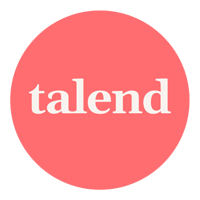
Talend: Best for Scalability
Overall rating: 3.4
- Cost: 1
- Feature set: 5
- Ease of use: 4
- Support: 3.5
Talend data quality software is designed to clean and mask your data in real-time. It uses machine learning to handle data quality issues as data flows through your systems. Our analysis of the platform found Talend’s data quality features to be well-equipped to handle large volumes of data. It can process data in parallel and leverage distributed computing capabilities to handle big data workloads ably, meaning it can scale to meet the needs of companies dealing with enormous amounts of data.
Talend data quality seamlessly integrates with other Talend products, such as Talend Data Integration and Talend Data Catalog. This allows users to build end-to-end data management solutions that can handle large and complex data sets while maintaining data quality.
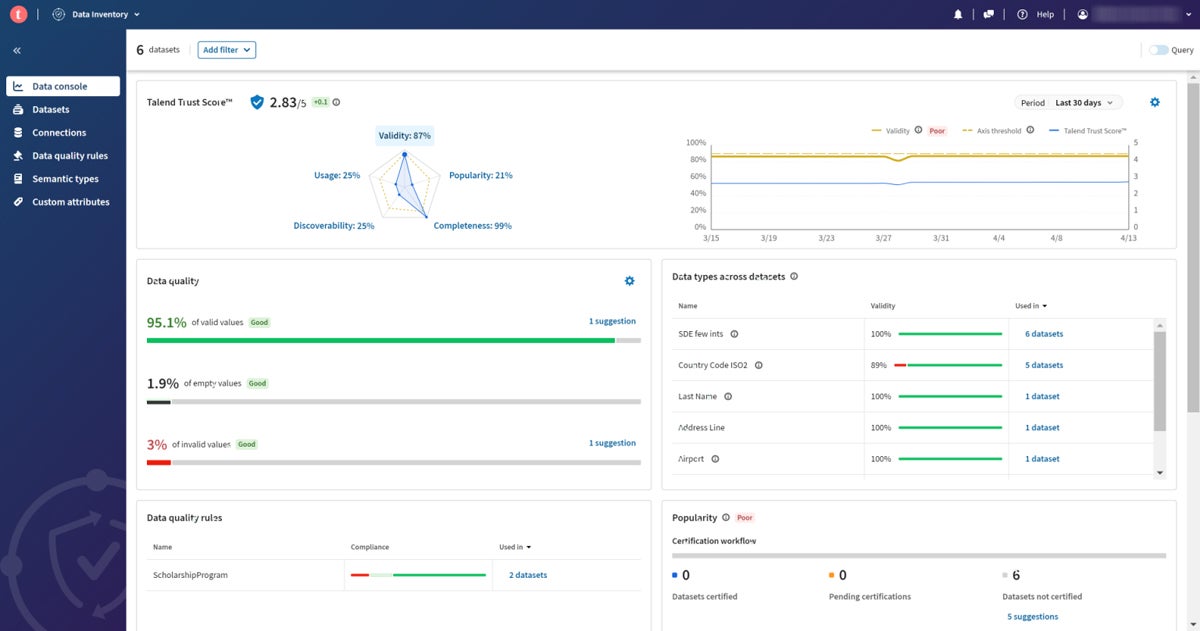
Pros and Cons
| Pros | Cons |
|---|---|
| Users find the tool simple and easy to use | Resource-intensive |
| Comprehensive suite of functionalities — it offers robust data profiling, cleansing, and enrichment tools | Technical support can be better |
Pricing
Pricing for the solution is not publicly available. Contact the company for a custom quote.
Features
- Data profiling and preparation capabilities.
- Built-in Talend Trust Score gives you an actionable assessment of confidence in your data.
- It automatically cleanses incoming data with machine learning-enabled deduplication, validation, and standardization.
- Compliance with internal and external data privacy and data protection regulations.

Ataccama ONE Data Quality: Best for AI Capabilities
Overall rating: 3.0
- Cost: 1
- Feature set: 5
- Ease of use: 4
- Support: 2
Ataccama’s data quality functionalities are built natively with AI, enabling businesses to leverage machine learning algorithms to automate data quality tasks and remediation processes.
The software can automatically detect data quality issues such as missing values, duplicates, outliers, and inconsistencies and provide suggestions for resolving these issues. Ataccama ONE reduces the need for manual intervention by providing AI-assisted cleansing, standardization, and issue resolution capabilities within a synergistic data catalog.
Our study found that Ataccama ONE Data Quality can integrate existing ETL (Extract, Transform, Load) processes, CI/CD (Continuous Integration/Continuous Deployment) pipelines, and analytics platforms. This integration enables you to implement data quality checks at various stages of the data lifecycle, ensuring that only high-quality data enters your business systems.
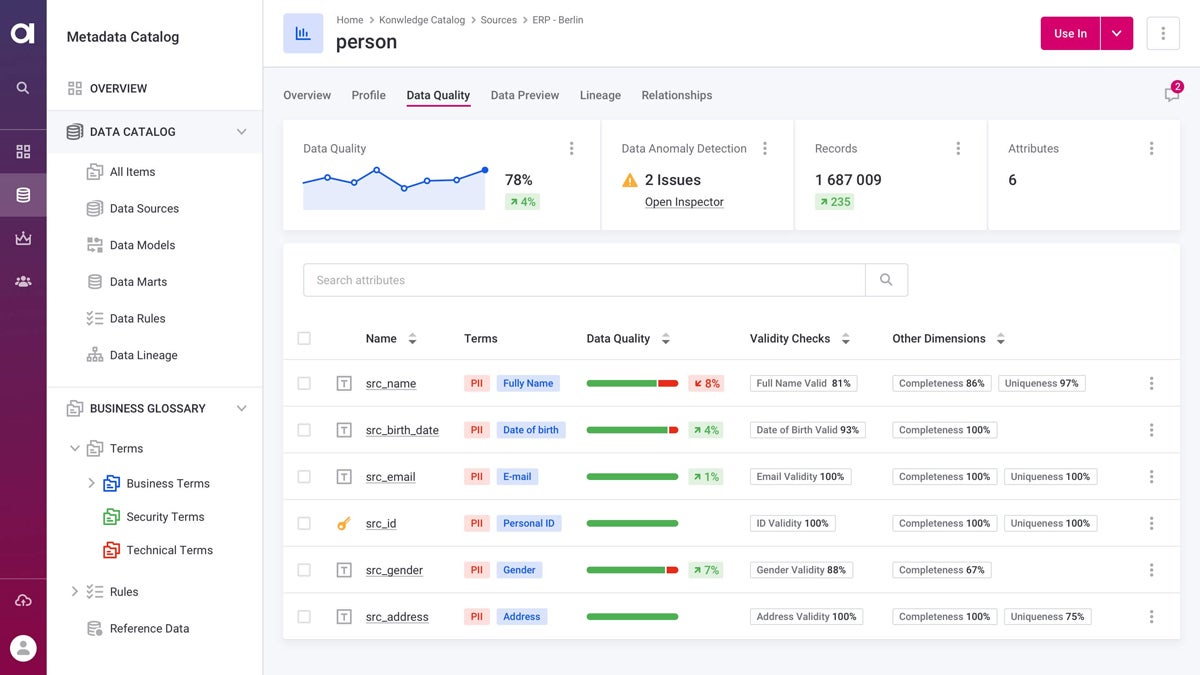
Pros and Cons
| Pros | Cons |
|---|---|
| AI-assisted cleansing, standardization, and issue resolution | Slow response time from support |
| Automated alerts and notifications | Complex integration process |
Pricing
Though Ataccama doesn’t advertise its rates on its website, publicly available data shows Ataccama ONE Unified Data Management Cloud Platform costs $90,000 per year, while the Ataccama Upgrade Unit costs $10,000 per unit. That said, we recommend contacting the Ataccama sales team to get your actual pricing information.
Features
- Uses AI to automate the data preparation and validation process.
- You can integrate data quality checks with your existing ETL, CI/CD pipelines, and analytics platforms.
- Automate data quality remediation at various stages.
- Streamline data quality preparation, remediation, and other processes with data quality co-pilots and assistants.
- Deployable on-premise, in the cloud, or in hybrid environments.

Informatica: Best for Data Profiling and Cleansing
Overall rating: 3.8
- Cost: 2
- Feature set: 5
- Ease of use: 4
- Support: 3.5
Informatica provides a comprehensive suite of data quality products that include data profiling, data cleansing, data monitoring, and data governance capabilities.
The platform allows you to analyze and understand the quality of your data through ample data profiling capabilities, helping you identify data anomalies, inconsistencies, and patterns to assess the overall data quality. On top of that, Informatica provides advanced cleansing capabilities to standardize, correct, and enrich data, ensuring its accuracy and integrity. It includes many data cleansing functions, such as address validation, formatting, deduplication, and enrichment.
Informatica’s AI engine, CLAIRE, leverages metadata-driven artificial intelligence to deliver intelligent recommendations for data quality rules. It can detect data similarity automatically. This is critical for identifying and managing duplicate data, which can challenge data quality management.
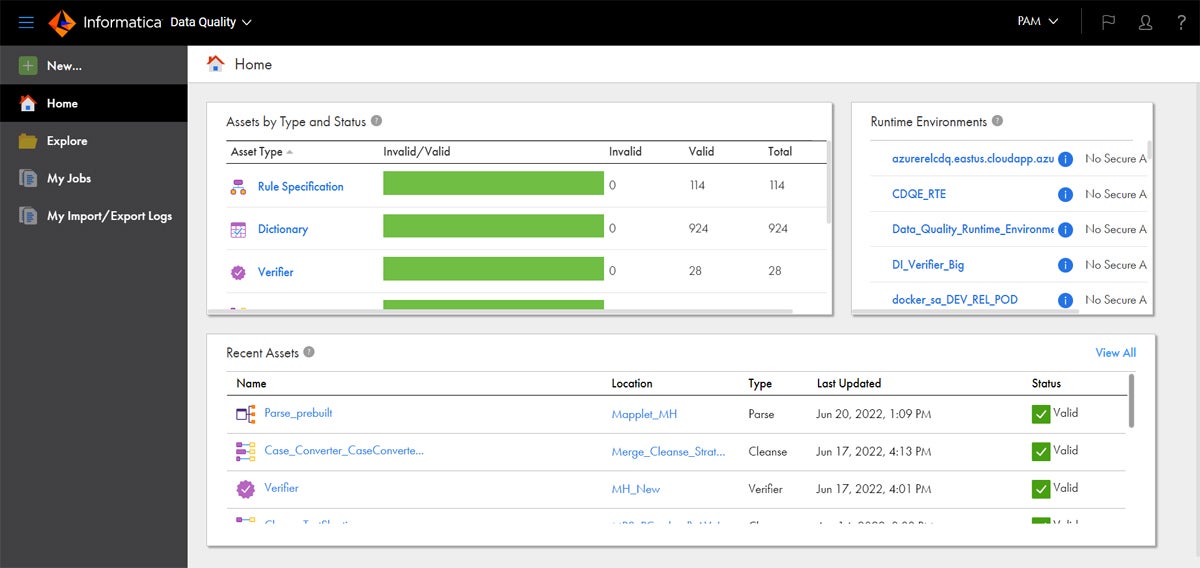
Pros and Cons
| Pros | Cons |
|---|---|
| Users find the solution highly stable | Expensive tool |
| It’s capable of highlighting anomalies in data | The user interface can be improved |
Pricing
While Informatica doesn’t advertise its rates on its website, we found that one bundle of its Intelligent Data Management Cloud (IDMC), of which data quality is a part, costs $129,600 per year, $259,200 for two years, and $388,800 for a three-year subscription.
Features
- Data discovery and observability.
- AI-driven insights.
- Self-service data quality for business users.
- Low-code/no-code capabilities.

Oracle Enterprise Data Quality: Best for Large Enterprises with Complex Data Quality Requirements
Overall rating: 3.4
- Cost: 1
- Feature set: 5
- Ease of use: 4.5
- Support: 3.5
Our research found that Oracle Enterprise Data Quality (EDQ) offers tools capable of meeting the needs of enterprises with complex data needs, as it provides a comprehensive set of capabilities for data profiling, audit, parsing, and standardization; match and merging; address verification; and product data extension. Oracle EDQ offers global address verification and geocoding coverage, adding geocodes to city or postal codes for over 240 countries.
The platform’s ability to profile and audit data can help organizations uncover and quantify hidden data problems, while data parsing and standardization let users transform and standardize data, such as names, addresses, dates, and phone numbers. The match and merge feature allows for matching and merging parties at individual, group, or household levels, with flexible rules that can be tailored to suit specific business needs.
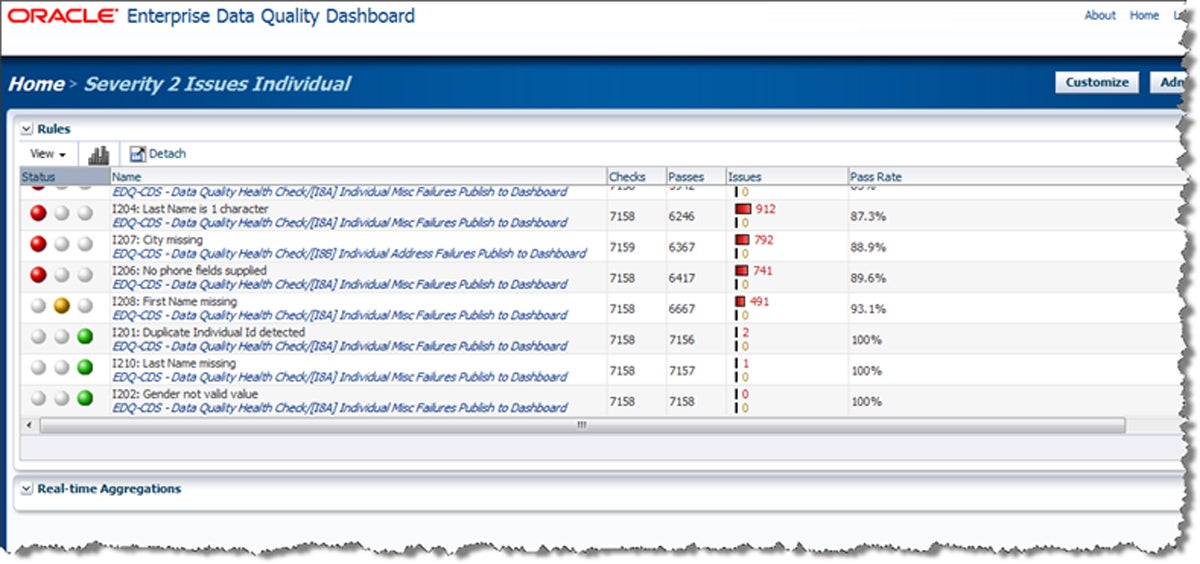
Pros and Cons
| Pros | Cons |
|---|---|
| Standardize and cleanse data to meet quality standards | Support can be improved |
| Advanced matching and de-duplication | Steep learning curve for beginners or new users |
Pricing
Contact the company for quotes.
Features
- Parsing and standardization.
- Match and merge capabilities.
- Case management functionality.
- Address verification.
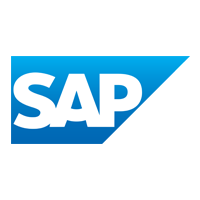
SAP: Best for Analytics and Supply Chain Management
Overall rating: 3.7
- Cost: 1
- Feature set: 5
- Ease of use: 4.5
- Support: 5
SAP Data Quality Management (DQM) helps businesses improve the quality of their data by ensuring its accuracy, completeness, and consistency. The company’s DQM has three versions of SAP solutions: SAP HANA smart data quality, SAP Data Quality Management, microservices for location data, and SAP Data Services.
SAP HANA smart data quality offers a high-performance, rule-based solution to cleanse and merge data, such as address data, to identify duplicates in the data sources. The service for location data within SAP Data Quality Management specifically focuses on improving the quality of location-related information. It helps businesses ensure that their location data is correct and up-to-date. This includes addresses, geocodes, coordinates, postal codes, and other location-specific information.
By integrating the location data microservice into enterprise systems, businesses can improve the accuracy of their customer databases, reduce shipping errors, optimize logistics and routing, enhance location-based services, and ultimately provide better customer experiences.
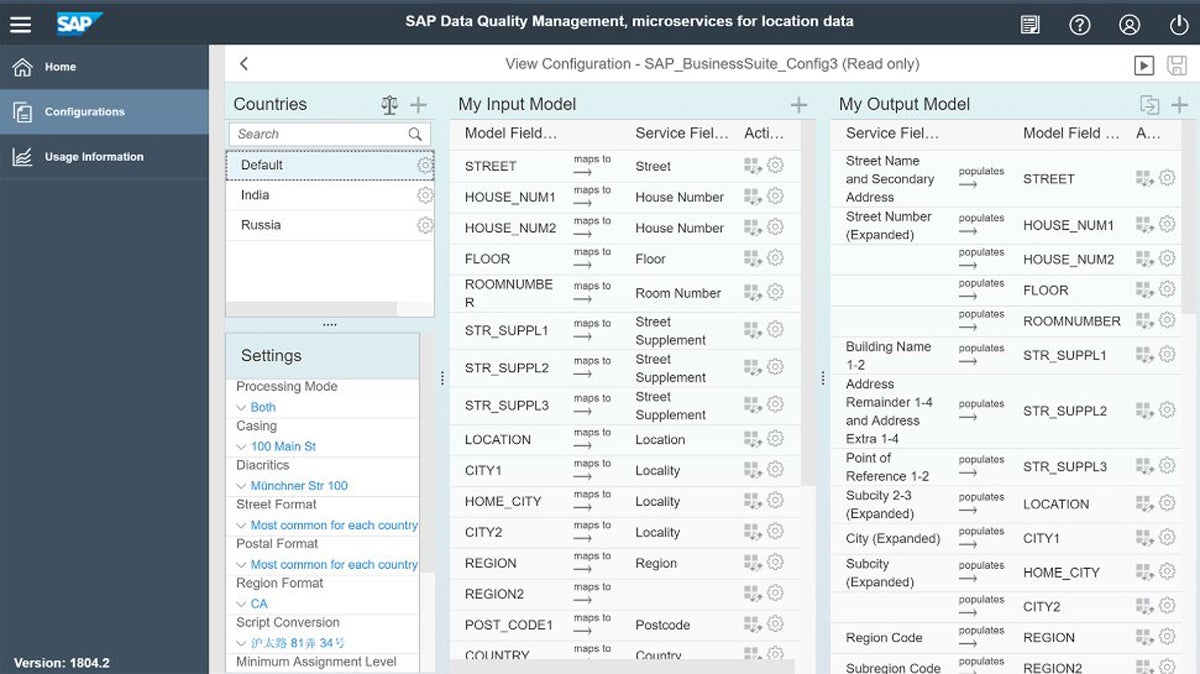
Pros and Cons
| Pros | Cons |
|---|---|
| Centralized data management | Complexity of implementation |
| Quality addressing validation capability | Users reported that data integrations with non-SAP applications are bit complicated |
Pricing
SAP Data Quality Management, microservices for location data costs $864, but contact the company for a more comprehensive quote.
Features
- Geolocation enrichment services.
- Built-in integration with SAP applications.
- Address validation and geocoding.
- Type-ahead autocompletion.

Precisely: Best for Data Enrichment
Overall rating: 3.2
- Cost: 1
- Feature set: 5
- Ease of use: 4
- Support: 2.5
Precisely offers several data quality solutions, such as data matching and entity resolution, data validation and enrichment, address validation and standardization, CRM & ERP data validation, customer 360, and data observability tools.
These products provide customers across various sectors with the means to ensure accurate and reliable data in their systems. Our analysis of the Precisely platform reveals that its data enrichment tool is highly regarded for its robust capabilities.
Precisely’s data enrichment tool leverages a vast database of internal and external sources to provide up-to-date information, enabling businesses to gain deeper insights. For example, its location intelligence tool offers a catalog of over 400 datasets containing 9,000+ attributes. This allows organizations to enrich their location or address data with a wide range of information, including points of interest, property attributes, demographic data, and dynamic data like weather changes.
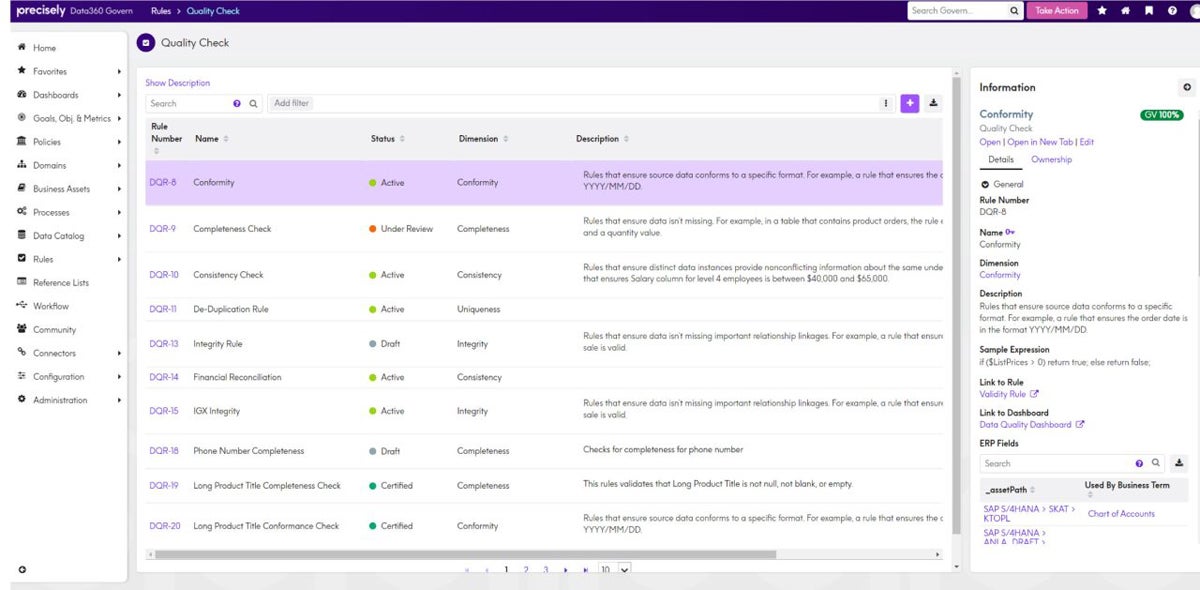
Pros and Cons
| Pros | Cons |
|---|---|
| Advanced visualizations | Customer support can be improved |
| Intuitive and user-friendly interface | Initial setup and implementation can be challenging |
Pricing
Contact the company for a custom quote.
Features
- Geo addressing and spatial analytics.
- Automated validation and cleansing.
- End-to-end DQ.
- Users can collaborate on data quality metrics and visualizations with the ability to annotate on dashboards and capture point-in-time feedback.
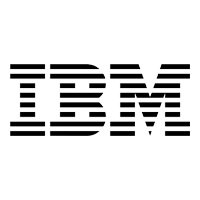
IBM InfoSphere: Best for Unified Data Quality Management
Overall rating: 3.4
- Cost: 1
- Feature set: 5
- Ease of use: 4
- Support: 4
If you are looking for a tool to help you cleanse data and monitor data quality in a centralized environment, IBM InfoSphere Information Server for Data Quality is a top choice. It offers many data quality features, including data profiling, classification, investigation, standardization, matching, survivorship, address verification, and monitoring.
The platform enables you to understand your data and its relationships, continuously analyze and monitor data quality, cleanse, standardize, match data, and maintain data lineage. The tool also includes support for USAC and AVI address cleansing and validation, which can be valuable for organizations that deal with address data.
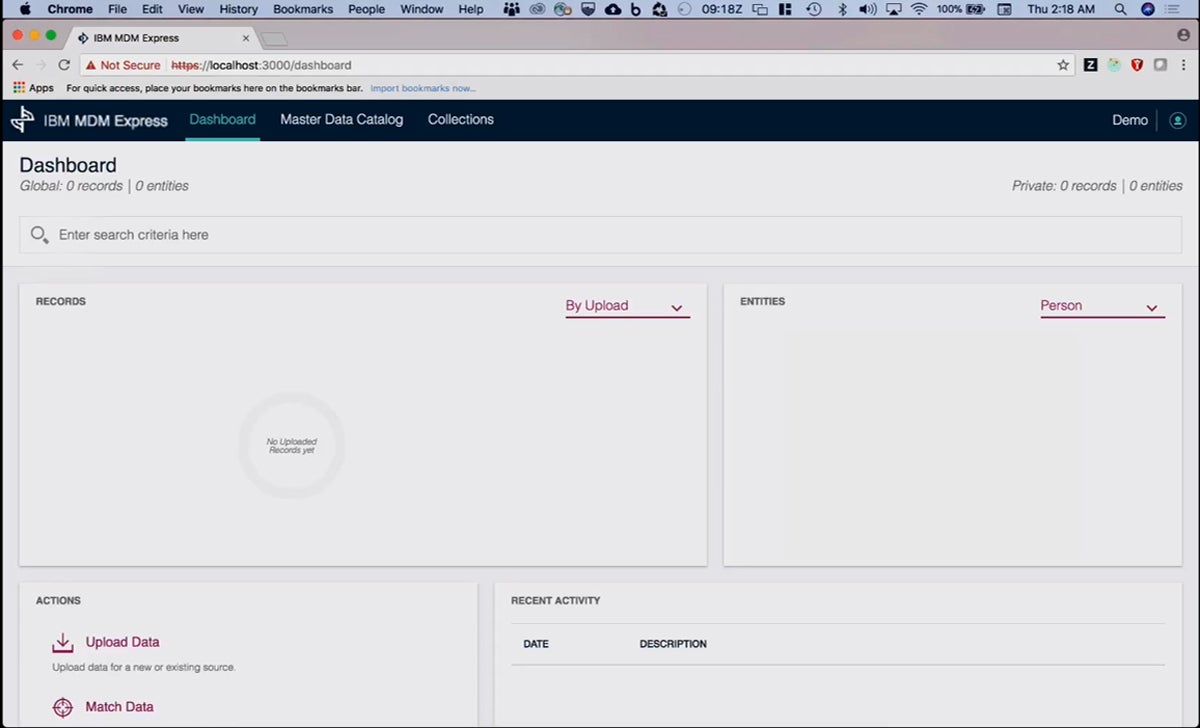
Pros and Cons
| Pros | Cons |
|---|---|
| Flexible deployment — on-premises, in the cloud, or both | Expensive |
| Quality and responsive customer support | May take some time to get familiar with the functionalities |
Pricing
Contact the company for a quote.
Features
- Automates data investigation, information standardization, and record matching based on business rules.
- Data monitoring capability.
- Data standardization and validation.
- Classification function.

Atlan: Best for Collaboration
Overall rating: 2.9
- Cost: 1
- Feature set: 5
- Ease of use: 4.5
- Support: 1
Atlan simplifies the process of working with data by allowing teams to store, clean, analyze, and collaborate on data on a centralized platform. The platform provides several features, including data cataloging, discovery, quality assessment, and lineage tracking.
Atlan collaborative features enable multiple team members to collaborate on real-time data analysis, visualizations, and reporting. You can send questions directly to your team’s Slack channel from Atlan or create a Jira ticket directly from Atlan.
Atlan also offers a Chrome plugin that lets you access its metadata within your BI tool, enhancing the data-driven analysis experience. The platform provides a Slackbot that enables anyone in the team to search for and access business definitions. This helps maintain consistency and understanding of data across the organization, as users can quickly retrieve definitions and context within the Slack messaging platform.
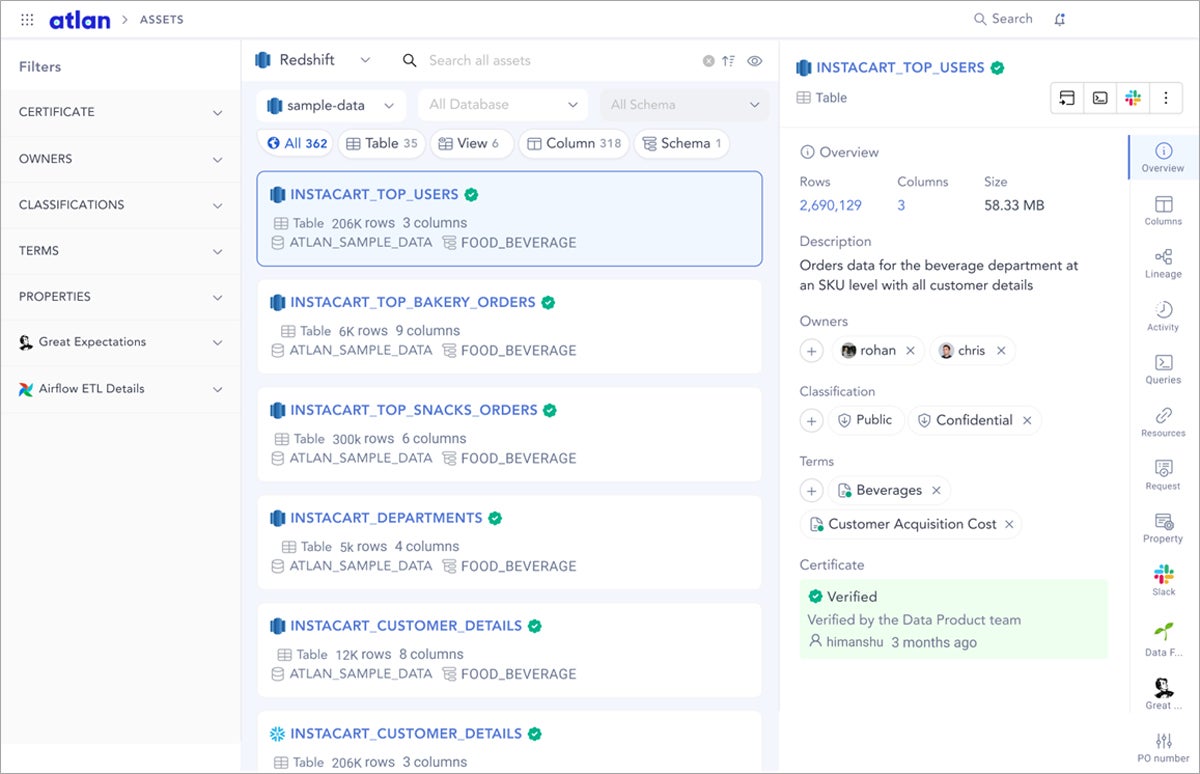
Pros and Cons
| Pros | Cons |
|---|---|
| Extensive collaboration capability | Product documentation can be improved |
| Provide slack alerts | Maybe too expensive for small businesses or those on budget |
Pricing
Atlan requires interested buyers to contact their sales team for quotes. Publicly available information shows that Atlan Active Metadata Platform costs $120,000 per year, $220,000 for 24 months, and $340,000 for 36 months. Contact the Atlan sales team for a quote to get your actual rate.
Features
- Automatically mask sensitive data.
- Integration with third-party apps such as Slack, GitHub, Google Drive, Confluence, Jira, Figma, and Notion.
- Metadata management.
- Natural language search.
- Search using SQL syntax.
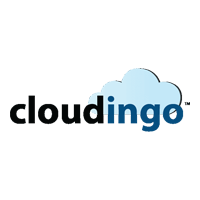
Cloudingo: Best for Improving Salesforce Data Quality
Overall rating: 2.5
- Cost: 1.3
- Feature set: 1.8
- Ease of use: 4.5
- Support: 2.5
Cloudingo is a cloud-based data quality and deduplication tool for Salesforce. It helps organizations maintain clean and accurate customer data by identifying and merging duplicate records, as well as standardizing and enriching data.
The platform’s capabilities include automated deduplication, merging of duplicate records, data cleansing, and enrichment to enhance data quality. Our research found that Cloudingo provides customizable matching rules to identify and merge duplicate records based on different criteria. It also offers real-time syncing to ensure data consistency across different Salesforce objects and modules.
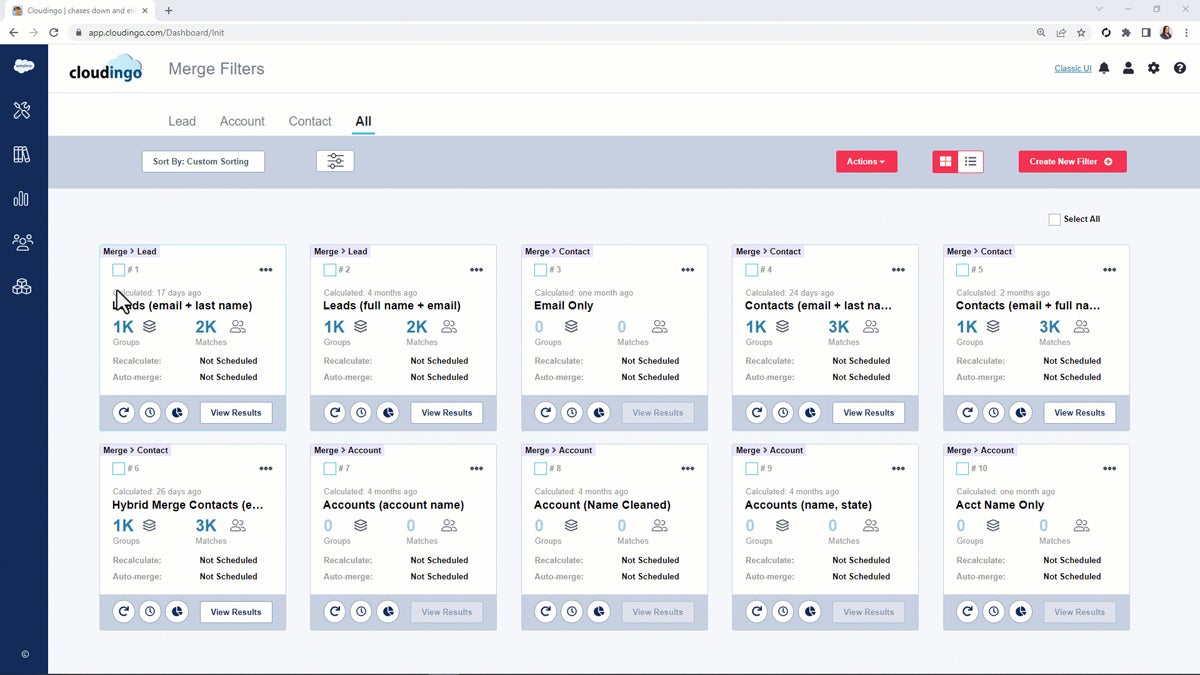
Pros and Cons
| Pros | Cons |
|---|---|
| Transparent pricing | Support can be better |
| Easy to learn and use | Limited features |
Pricing
A 10-day free trial is available.
- Standard: $2,500 per year. Single user account.
- Professional: $6,000 per year. 3 user accounts.
- Enterprise: $10,000 per year. 8 user accounts.
Features
- Discover duplicates using user-defined filters.
- Schedule dedupe jobs — you can set it for daily or weekly.
- Undo and restore merges.
- Progress and tracking reports.
- Mass update and mass delete records capabilities.
How to Choose the Best Data Quality Software for Your Business
The best data quality software should offer a combination of user-friendliness, customization, and scalability to meet the needs of your team and organization. Before buying a data quality tool, start by understanding your specific data quality needs.
- What are the problems you are trying to solve?
- Do you need to clean and standardize data, identify duplicates, or validate data integrity?
Make a list of features and functionalities that are essential for your business. This will guide your decision-making. We analyzed each tool’s features, pros, and cons, as well as the cost data of each tool, to help you determine the best option for your organization – weigh each of these key factors.
Before buying any data quality software, read reviews from current users and determine how closely their situations match your circumstances.
How We Evaluated the Best Data Quality Software
Cost – 25%
The cost category accounted for 25% of our evaluation criteria. We looked at factors such as the availability of free trials, pricing plans, and the transparency of pricing visibility.
Feature set – 35%
We assessed whether the software performs data profiling, enables data visualization, includes AI capability, and supports data governance. These capabilities were essential in determining the software’s effectiveness in improving data quality.
Ease of use – 25%
We examined the overall user interface of the data quality software we reviewed to determine whether it required expert set-up and the level of automation it offered. A user-friendly interface and automation features are essential in ensuring that users with varying technical expertise can quickly adopt and operate the software.
Support – 15%
We considered the support provided by each software. This included evaluating factors such as customer service hours, availability of live chat support, email/ticket support, and the presence of a comprehensive knowledge base.
Frequently Asked Questions (FAQs) About Data Quality Software
Common features of data quality software include data profiling, cleansing, standardization, enrichment, matching, monitoring, governance, integration, and security capabilities.
No, data quality software is not exclusively for large enterprises. Organizations of all sizes can benefit from data quality software if they have data-related challenges that must be addressed.
Data quality software can be deployed on-premises, in the cloud, or in hybrid environments, depending on the preferences and requirements of the organization. Some vendors also offer software as a service (SaaS) or platform as a service (PaaS) options.
Bottom Line: Data Quality Software
Data that has not been properly prepared can significantly impact your business, leading to inefficient processes, poor decision-making, and wasted resources. The best data quality software can address your organization’s data quality challenges, streamline processes, minimize errors, and provide reliable and accurate insights. By investing in the right data quality software, your company can improve its data quality, enhance decision-making processes, and drive overall business success.
For a deeper understanding of the many factors that drive optimal use of data, see our guide: What is Data Analytics